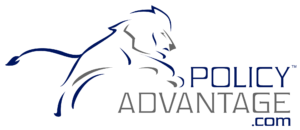Benefits Chalk Talk: Premium Only Plan (POP)
Welcome back to another edition of “Benefits Chalk Talk.” In this series at our blog, we provide you with valuable, up-to-date, relevant information about health benefits planning so that you can put the things in place that make the most sense for yourself or your company. At Policy Advantage Insurance Services, we feel that informed consumers can make a really big difference in our industry.
Today we’re going to be talking about “Premium Only Plans” (POP). The big reason we want to talk about this concept, is because there are some significant tax advantages that can be utilized by employers when adopting this strategy.
The concept of the Premium Only Plan (or POP) really is very simple. It’s exactly what it says it is: it’s a program that allows employees of an organization to pay for certain insurance premiums tax-free through payroll. That’s all there is to it. This concept is allowed under Section 125 of the IRS code.
Example: John Doe is an employee at Acme Corp. Acme Corp offers it’s employees an opportunity to purchase individual health insurance policies pre-tax through a Section 125 Premium Only Plan (POP). So, John Doe purchases a $250/month individual plan from Cigna, and submits his claim through Acme Corp’s POP third party administrator. By doing so, John Doe is now paying for his $250 monthly premium on a pre-tax basis (ie: before the government takes their money), and then paying taxes only on his remaining income.
As you can see in the above example, by pre-taxing his individual insurance premiums through a Section 125 POP, John Doe can save a lot of money on taxes over the course of the year. His employer (Acme Corp) can also reduce their FICA/FUTA liability (by ~7.65%).
Here are some of the types of policies that can be purchased w/ a Premium Only Plan (POP):
- Major medical individual health insurance premiums (health insurance)
- Limited benefit individual health insurance premiums
- Dental & Vision
- Medicare Part A or B, Medicare HMO (however, Long Term Care policy premiums cannot be reimbursed through a POP plan)
- Employer Sponsored Health Insurance Premiums (group plans)
- Qualified Ancillary Premiums (Accident Plans, Cancer Plans)
- Medicare Advantage and Medicare Supplement Premiums
- COBRA Premiums
Thanks for stopping by, we hope you found our information to be valuable. Check back at our blog to get further information about funding healthcare. Also, please share with your friends, clients, colleagues, and family. Here are a few of our other information outlets:
Home Page: https://policyadvantage.com
Twitter: http://www.twitter.com/PolicyAdvantage
Facebook: http://www.facebook.com/PolicyAdvantage
YouTube: http://www.youtube.com/PolicyAdvantage
Pinterest: http://www.pinterest.com/PolicyAdvantage
Word Press: http://www.policyadvantage.wordpress.com


